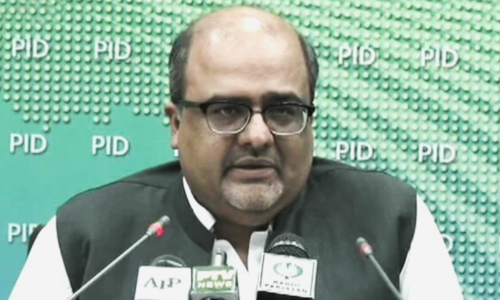Islamabad High Court on Wednesday rejected a petition challenging the appointment of Mirza Shahzad Akbar as adviser to the prime minister, saying that it is the "exclusive prerogative" of the premier to appoint anyone as his aide.
The high court chief justice was hearing a petition filed yesterday by Advocate Pervez Zahoor that challenged Akbar's appointment as the prime minister's adviser. The petition urged the court to declare Akbar's appointment null and void and argued that Supreme Court judge Justice Qazi Faez Isa had also questioned the aide's credentials and his appointment as adviser on accountability.
Akbar was the special assistant to the prime minister on accountability but was last month appointed as adviser with the same portfolio.
In the nine-page verdict, IHC Chief Justice Athar Minallah said that the Constitution allows the president to appoint no more than five advisers on the advice of the prime minister.
"The prime minister may tender advice to the president to appoint not more than five advisers," the judgement read. Prime Minister Imran Khan currently has five advisers and 14 aides in his cabinet.
"The president is empowered under Article 93 of the Constitution of the Islamic Republic of Pakistan, 1973 to appoint, on the advice of the prime minister, not more than five advisers," it said. "A court cannot substitute its own opinion with that of the prime minister and the matter thus falls outside the ambit of justiciability".
Justice Minallah also noted that the petitioner did not present any record that would prove Akbar's interference in the affairs of the National Accountability Bureau (NAB).
While addressing the petitioner's argument that Akbar "was not eligible" to sit in the meetings of the federal cabinet or the parliament, the high court chief justice said that advisers "have a right to speak and otherwise take part in the proceedings of either house" but are not entitled to vote.
The ruling added that an adviser is not part of the federal cabinet and is not entitled to attend its meetings "except when required to do so by the prime minister and, that too, pursuant to a special invitation". It also observed that an adviser is not "authorised" to act as the government's spokesperson.
Regarding Akbar's position as the chairman of the Assets Recovery Unit (ARU), the IHC verdict said that the matter has been challenged in the Supreme Court and a "detailed judgement in the matter is awaited".
"It is, therefore, obvious that propriety requires this court to exercise restraint to the extent of the aforementioned appointment," the high court ruled.


















































